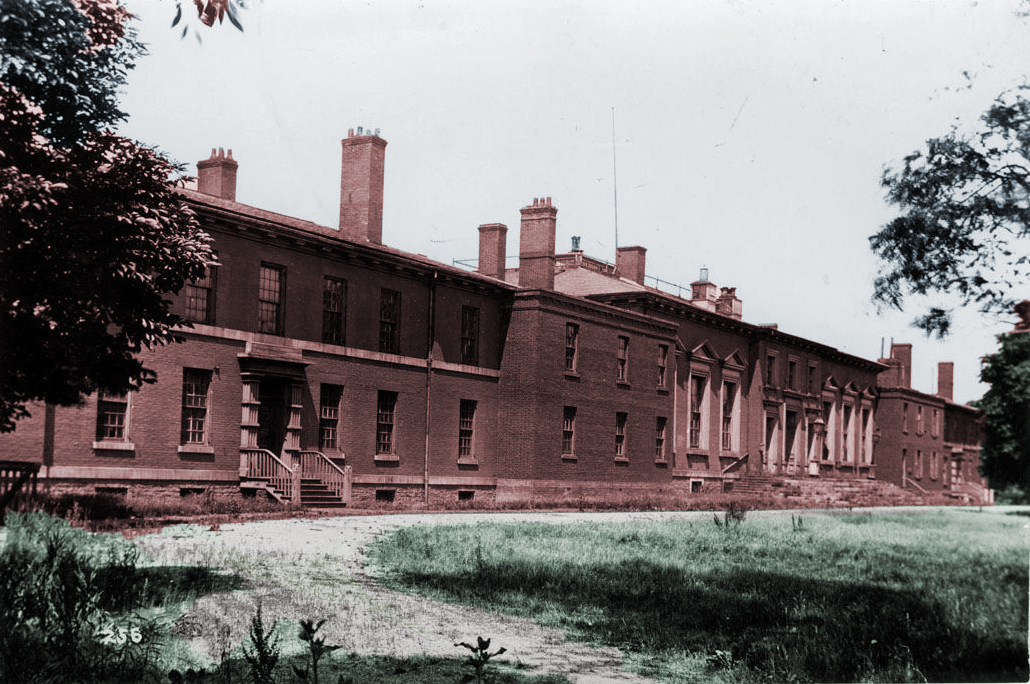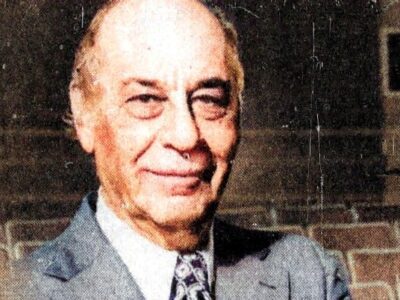Mama and Her Mitzvahs: Stories and Reminiscences, by Sophie Stransman (2002) provides a loving, anecdotal portrait of a golden-spirited woman who, with her husband, operated a small dry-goods store in the heart of Toronto’s Cabbagetown during the Depression.
Rachel and Elia Siegel were the proprietors of Siegel’s Groceteria, an authentic mom-and-pop operation that stood on the corner of Oak and Sumach streets. The store occupied the ground floor of a small house and the family lived upstairs. The store windows were crammed with canned goods and its front was decorated with signs for Coca-Cola, Orange Crush, Salada Tea and Winchester Cigarettes.
Mrs. Siegel was an industrious businesswoman who snapped up bargains at Eaton’s and offered them for sale in her humble groceteria. She had her own way with the English language and comically fractured many a fine English phrase: “Just between me, you and the barbershop pole,” she would say when addressing someone in confidence.
Above all, she was renowned for her kindheartedness and charity. She extended credit to many families with hungry children at home, dispatched nourishing chicken broth (by way of her daughter Sophie) to sick neighbours, and directed friends, customers and deliverymen upstairs to help themselves to the pot of coffee that was always brewing on her stove.
As the author nostalgically relates, Mama revelled in doing mitzvahs. She did so much on behalf of others that it took her years to attain her own simple dream, the purchase of a fashionable but used dress-suit.
Along with her kindness, she was the dispenser of much homespun advice and Yiddishkeit to those around her. “Never fight over children,” she once cautioned adults quarreling over their youngsters; “In an hour the children will be friends again, but the parents will remain enemies forever.” Because of her warmth and homey wisdom, people were drawn to her “like nails to a magnet,” the author relates. “The way she holds an audience in the palm of her hand, she should be on the stage,” a neighbour once remarked.
Somewhat humourously, Stransman relates that her mother “felt a strong sense of kinship” with another immigrant storekeeper, Timothy Eaton, and would gaze at his bronze statue in admiration on her weekly visits to Eaton’s.
Although we may draw comparisons between this real-life character and the fictitious storekeepers in stories by Bernard Malamud and other Jewish-American writers, we are always keenly aware that Mama is a uniquely Canadian figure, a Torontonian through and through.
For example, the author relates an incident that could only have happened in Toronto. A policeman once observed a girl leaving Siegel’s Groceteria on a Sunday with a bag of charcoal under her arm, and ticketed Mama for violating the Lord’s Day Act. She plied the officer with sourcream cake and explanations: was the girl’s family supposed to freeze until Monday, she asked? Further, she had taken the charcoal on credit and “we should make in a week what her father owes us.” Recognizing defeat, the officer retrieved the ticket and tore it up.
Stransman shows impressive skill for a novice storyteller. While some of her anecdotes seem lightweight, each has a certain avoirdupuis, like a quantity of butter, sugar or flour wrapped in paper. Only when you hold the collective weight of all these stories in a single grocery bag, as it were, do you appreciate their substantiveness.
Several of the reminiscences are extensive enough to be almost considered as short stories. My favourite, “A Cousin from Germany,” falls into this category. It tells the story of a sullen young visitor from Germany during the war era who finally breaks his silence and tearfully relates the fate of his family.
Taken as a whole, Mama and her Mitzvahs seems as tasty and haimische as a pot of chicken soup warming on a stove. ♦
© 2002






